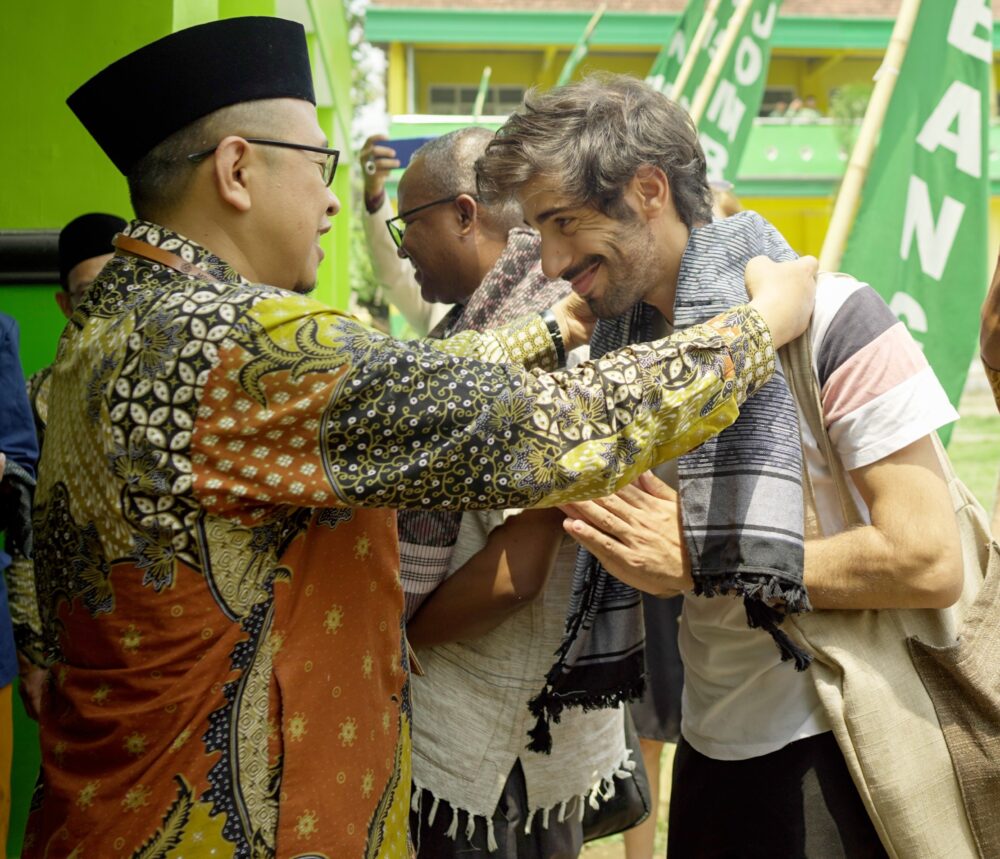Related
Read our latest articles, studies and columns on sexual health and rights.
Four countries – three continents. Geographically, they are miles away. But in November 2023 a group of civil society organisations and government officials from Tunisia, Ethiopia, and the Netherlands decided to gather in Indonesia. The trip was organised as part of the Right Here Right Now (RHRN) partnership to learn about Indonesia’s successful integration of sexual and reproductive health and rights (SRHR) curriculum in schools.
“There are many cultural and religious similarities to be found. We could share and learn from each other.”Hanna Mulugeta, Ethiopia’s youth country coordinator of the RHRN programme.
The SRHR education landscape in Indonesia stands out uniquely within the region. The country has adopted a national SRHR module curriculum that is delivered to all junior high schools. In addition, Rutgers Indonesia designed an additional module called SETARA*, which has been implemented in three provinces. SETARA aims to support healthy and positive sexuality development and has, to date, reached over 3500 pupils.

Partners from Ethiopia and Tunisia wanted to understand how a culturally rich country with a strong religious community achieved the dissemination of SRHR education with notable success and minimal pushback.
Mulugeta remarked, “I have been amazed at the effective collaboration of Indonesian partners with local leaders and government officials. Throughout our visit, we observed people’s enthusiasm and their belief that the SRHR curriculum significantly enhances the situation for young people.”
To obtain firsthand insights, the group journeyed through Jakarta and Jombang, a regency in East Java known for its strong Islamic presence. Here, they engaged with those involved: government and district officials, academics, religious leaders, teachers from religious, public and special-needs schools, as well as civil society organisations, including young people and women-led groups.
Regarding the co-creation and enthusiasm for SRHR education, Hastin Asih, the country coordinator of Rutgers Indonesia, shared, “In Indonesia, the collaboration with local leaders and officials didn’t happen overnight. Eight years ago we started evaluating norms and values and the realities of young people in the region. Secondly we approached policymakers to support them. If they, for example, sought ways to reduce rates of gender-based violence, we understood that comprehensive SRHR education could be instrumental in achieving this goal.”

Berhanu Demissie, Executive Director of the Development Expertise Center (DEC) and lead partner of the RHRN programme in Ethiopia, found it particularly relevant to see how SETARA had expanded across provinces. He commented, “Most local stakeholders have actively participated as co-creators, fostering their enthusiasm. Indonesian local governments and ministries are funding the scale-up. The concept of co-creation is interesting, especially in Ethiopia, where we seek ways to transition from foreign funding to sustainable national funding opportunities.”
“Most local stakeholders have actively participated as co-creators of the SRHR module curriculum, fostering their enthusiasm”Berhanu Demissie, Executive Director of the Development Expertise Center (DEC) and lead partner of the RHRN programme in Ethiopia

For civil society organisations, national laws and guidelines often serve as an entry point for engaging with governments. By assessing the implementation of laws and policies, they can hold governments accountable. Both the Tunisian and the Ethiopia government has adopted national anti-gender-based violence guidelines, empowering them to advocate for the integration of SRHR education. However, without strong connections within the government, moving forward becomes challenging.
Tunisian delegate Myriam Skhiri serves as the country coordinator of the Tunisian RHRN country programme led by the Tunisian Association for Reproductive Health (ATSR): “We were very pleased to have technocrats from within the Ministry of Education join us on this trip. Closer collaboration will assist us as they play a crucial role in advancing the adoption of SRHR education within the government.”
Aida Ferchichi, an education inspector at the Ministry of Education of Tunisia, was among these technocrats. Her efforts to integrate SRHR into Tunisia’s education system have encountered multiple challenges. “Adapting national curricula in Tunisia,” she explains, “requires navigating through stringent national procedures that are difficult to alter. Additionally, our country faces political instability and a high turnover of ministers.”
All participants from the three visiting countries returned home enriched with insights and lessons from Indonesia. Plans for new cross-country exchanges in 2024 are underway, leveraging this year’s success to foster deeper cross-country collaboration and shared development.
* SETARA: Semangat Dunia Remaja or Teen Aspirations is a module being implemented at junior high schools with adolescents aged 12-15 years in Indonesia. SETARA aims to support healthy adolescent sexuality development by teaching vital information and promoting life skills such as critical thinking, communication, negotiation and assertiveness. SETARA was designed by Rutgers WPF Indonesia in collaboration with Perkumpulan Keluarga Berencana Indonesia, the Indonesian Family Planning Association in Yogyakarta.

Read our latest articles, studies and columns on sexual health and rights.
Uw browser (Internet Explorer 11) is verouderd en wordt niet meer ondersteund. Hierdoor werkt deze website mogelijk niet juist. Installeer Google Chrome of update uw browser voor meer internetveiligheid en een beter weergave.